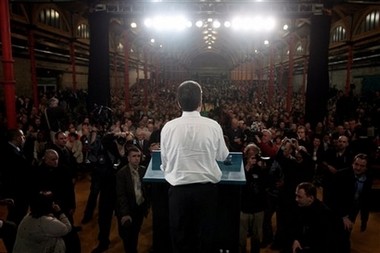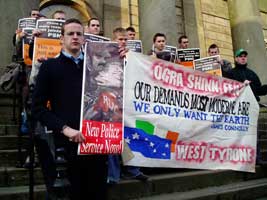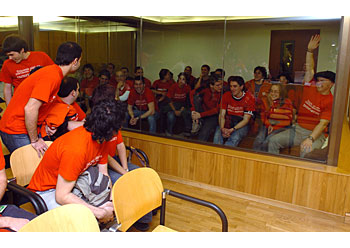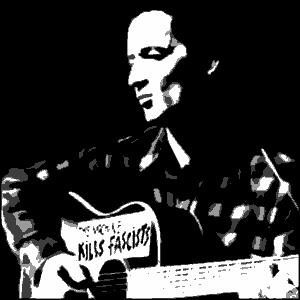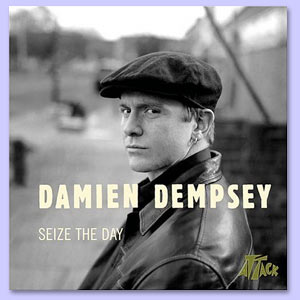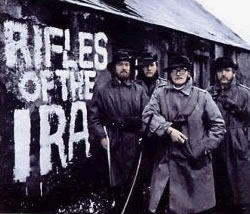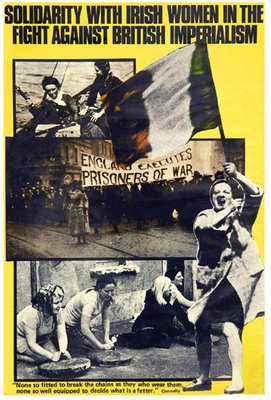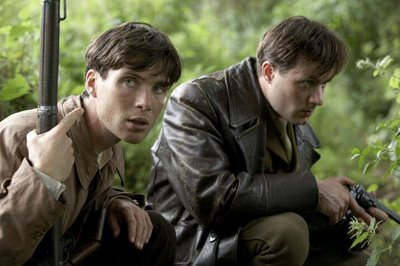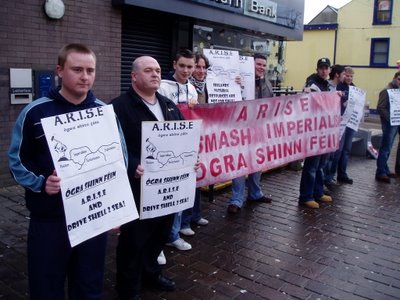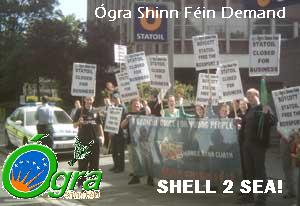Ógra Shinn Féin National Congress held an extraordinary meeting this weekend to discuss the Sinn Féin Ard Chomhairle initiative on policing.
The Congress passed a motion setting out a revolutionary new model of policing with radical changes in structure and practice and called on all Ógra members to vote against the Ard Chomhairle motion at the Extraordinary Ard Fheis next Sunday.
The Congress also urged republicans to remain united and said that they will respect whatever decision is taken by the party’s Ard Fheis next weekend.
Speaking following the meeting head of Ógra Shinn Féin Barry McColgan said:
“The issue of policing is absolutely huge for republican activists, our communities and support base and any decision taken on policing will have wide ranging implications for republicanism as a whole.
“Ógra Shinn Féin’s position from it’s inception since 1997 has always opposed the brutal, sectarian state militia, that passed for a police force in the north. It was Ógra who spearheaded the ‘Disband the RUC’ campaign, it was Ógra who called on young people not to join in a re-packaged RUC - the PSNI and it was Ógra who last year were shouting from the rooftops, literally, to ‘smash political policing’.
“The motion passed at this weekends National Congress sets out a revolutionary new model of policing with radical changes in structure and practice. It calls for the formation of municipal policing which is locally accountable at district council level, decentralising power away from the state. It is about decoupling the state from policing.
“It is important that next weekend there is a healthy, comradely debate and that whatever decision is taken that we remain united.”
 Motion adopted at Ógra Shinn Féin Extraordinary National Congress
Motion adopted at Ógra Shinn Féin Extraordinary National CongressÓgra policing policy
Introduction
The history of policing in Ireland is one of oppression and tyranny, especially when directed at Republicans; it is a record of police forces rather than police services. If Republicans are to support, engage or endorse a police service in the 6 Counties, even in a critical way, it must do so in a way that enhances and protects our communities, advances the struggle and does not stifle or impede progress towards the Republic.
Ógra recognises that policing will never provide an ideal service, but we must strive for as perfect a police service as possible. The PSNI, as currently constituted, do not represent a service that is anywhere near perfect, nor does it have the in-built ability to change to make it adequate to Republicans.
The case against the PSNI
The primary functions of the PSNI are twofold; firstly to enforce law and order, and secondly to uphold the six county statelet. At present, the law and order that is being upheld by the PSNI is that of the British state operating in Ireland. Laws passed in Westminster are enforced and enacted in Ireland, a foreign rule of law enforced by a locally recruited militia. However, in a scenario whereby the 6 county assembly is up and running and that all powers are fully devolved, the PSNI would therefore be enforcing laws decided upon by Irish people, in Ireland, representing Irish people. For as long as partition exists, this will remain imperfect, though it does remove the British aspect from the laws being enforced.
However, the second primary function of the upholding of the statelet remains a barrier to the acceptability of the PSNI. This is the barrier, which is ideological, practical and strategic, that Republicans, as revolutionaries, must overcome. We must therefore decide whether we are going to support and endorse a force that actively works against our objectives, or to approach the issue of policing in a progressive way, not limiting ourselves to the staid old model of a monolithic police force.
Alternative Structures
We are proposing that for a new beginning to policing, there is a need for a truly new police service, not merely a renamed and repackaged RUC. We recognise that our communities need and deserve a police service that will truly serve them and protect them from those that seek to damage and harm them. We also recognise that any new structures must be fully acceptable to all those communities living in the 6 counties, whether they be loyalist, unionist, nationalist, republican or from the various other ethnic and religious communities that reside in Ireland today. To this end all these new services must be apolitical and impartial.
The model that we are proposing is to have a municipal police service, answerable to the 7 new super councils, that are responsible for the enforcement of civic and criminal law within their areas. These new police services would have no role in intelligence gathering, counter insurgency, riot control or any other political type policing other than that that constitutes a criminal offence. Overall responsibility for the running and maintenance, in terms of financing and equipping, of the municipal police services would rest with the devolved department for policing and justice. These new police would be responsible for enforcing only those laws that are passed by the devolved administration or the local council that fit the criteria previously outlined.
It is naïve to think that the British would leave their colony in Ireland without any form of colonial police force to enforce their rule and their law, therefore the PSNI/RUC would be likely to exist on a statelet wide level. We could continue to oppose their existence, their right to enforce British laws in Ireland, their political policing and dissuade our supporters from engaging or cooperating with them, while also holding them publicly to account through a policing board where, by not endorsing them, we can truly break them and expose their activities.
This would mean that there would exist a multi tiered policing structure within the 6 counties similar to that of many continental countries. For example, in Spain there exist a number of police forces and services at municipal, provincial and national level. At the national level, the Guardia Civil act as a paramilitary police force, suppressing, for example, our comrades in the Basque country, but as the area of responsibility declines, so the acceptability of the service increases to the people.
The best analogy that currently exists is that of traffic wardens operating in the 6 counties. They are answerable to the local authorities and are responsible for the enforcement of parking and traffic bye laws. While their profession may be disliked the world over, the objection does not come from a political perspective. The laws that they enforce are not in any way politically sensitive and are widely accepted by all. It would be possible to have a service enforcing those laws that are accepted by all decent members of all communities in a just and equal manner.
The all Ireland aspects of the system should be pursued vigorously through the Department of Policing and Justice and justice and policing should be pursued as an area in which a cross border implementation body could operate. This could lead in time to cross border personnel transfer and cooperation between the municipal police forces and the Gardaí. It would also be our preference to see municipal police services operate in the 26 Counties as well.
CRJ and Safer Neighbourhoods
These projects should continue but with greater funding and in cooperation with the new civic municipal police services.
The new service should work in partnership with communities and other groups such as Probation and Welfare Services, Courts Services, Community Groups, Residents Groups, Sporting Groups, Education and Library Boards, Departments of Agriculture, Fisheries, Forestry, Red Cross, RNLI etc. Contact with the PSNI/RUC should be kept to an absolute minimum to gain the maximum amount of community support and confidence and to prevent corruption seeping through.
Recruitment
Recruitment should be carried out initially by the HR department of the new councils in conjunction with the Policing Ombudsman’s office, until the new structures can deal with its own recruitment with full community confidence. Membership numbers and ratios, be they gender, religious or other, should be determined by agreement between the local council and the 6 county policing board.
Those wishing to move from the PSNI/RUC or the Gardaí to one of the new services would require a thorough background check by the ombudsman’s office and approval by the 6 county policing board. All members would be required to take an oath to respect human rights, equality, etc. Former POWs will be subject to the same recruitment standards as all other applicants, their previous record shall have no negative effect upon their application.
Accountability
The new policing services would be held accountable in much the same way as laid out in the Patton report. In addition to the single policing board for the 6 counties, there would also be a local policing board for each district council as a replacement to the DPPs.
They would have a similar makeup to the overall policing board and would perform a similar function for the municipal police as the 6 county policing board performs for the PSNI/RUC at present.
The 6 county policing board would continue on in an oversight role for the municipal services and any police force that may continue on for the 6 counties as a whole. The Ombudsman’s office would continue on as before, though would also be responsible for the municipal services.
Conclusion
Republican support for law and order should not be dependant on the upholding of the British state in Ireland. We feel that the two issues should be completely separate rather than blackmailing the Republican and nationalist communities into supporting the so called ‘national security’ of Britain in Ireland in return for safety and justice for the community.
We believe that the above model provides some answers for providing a more acceptable and better, though not perfect, police service than exists anywhere in Ireland at present. Other issues such as cross border cooperation need to be pursued vigorously by Republicans. Our communities deserve to be policed, but they need a police service, not a police force.


